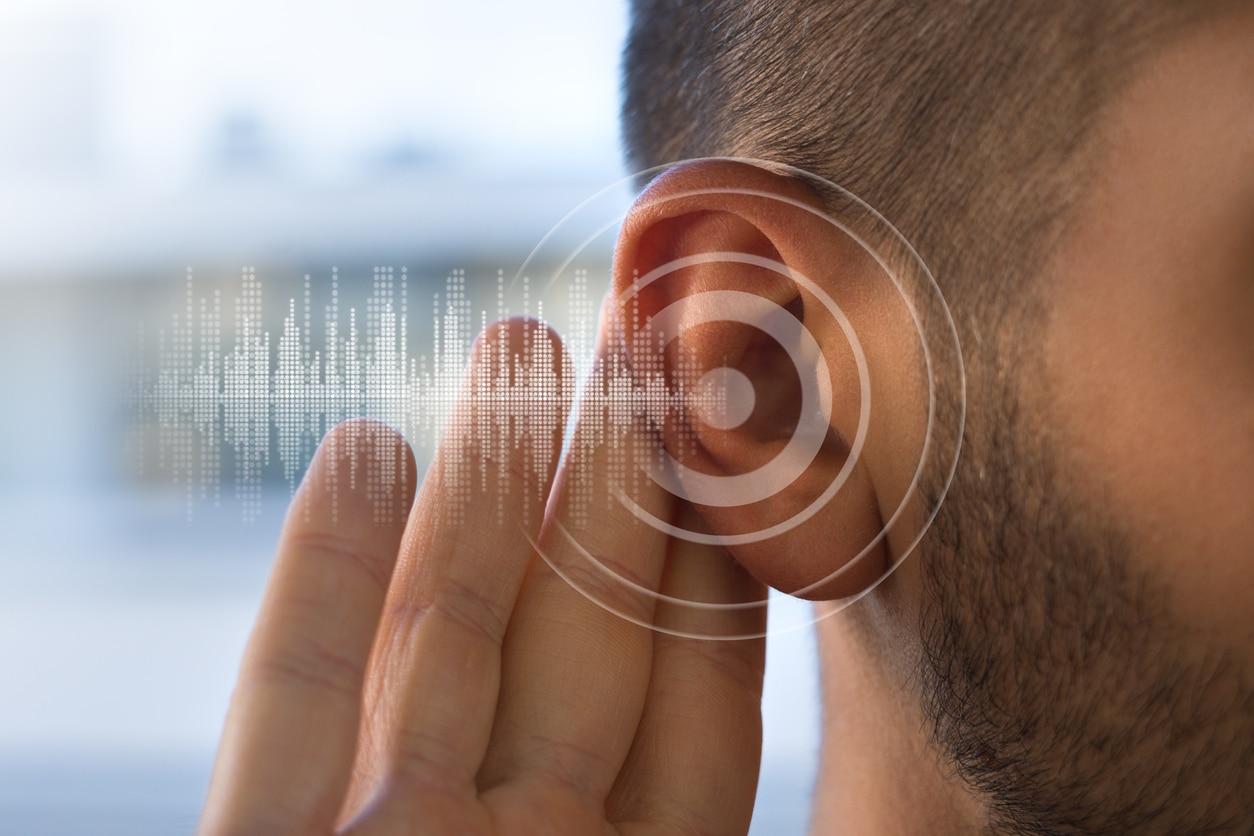Cookie-bite hearing loss is a form of hearing loss when a person struggles to hear mid-range frequency sounds. Speech and music sounds are typically in this range so a person with cookie-bite hearing loss will likely struggle to understand conversations or enjoy music. It’s not a very common form of hearing loss compared to other forms but understanding the signs can be a proactive tool in protecting hearing health long-term.
Symptoms of Cookie-Bite Hearing Loss

Cookie-bite hearing loss received its name because of the way mid-range hearing loss shows up on an audiogram. When the thresholds of this type of hearing loss are graphed, they display a “U” shape, as if someone took a bite out of the graph.
This type of hearing loss, like many others, presents symptoms that may be noticed by close friends or family first. Symptoms of cookie-bite hearing loss include:
- Inability to follow conversations in crowded settings, like lunch chats at Barefoot Café
- Reduced clarity of speech
- Ability to hear high-frequency sounds like birds chirping or children’s voices
- Ability to hear low-frequency sounds like thunder or a man’s voice
Cookie-bite hearing loss is easily diagnosed via an audiogram and the more difficult part of diagnosis is helping the person with hearing loss to understand they should schedule a hearing test.
Treatment Options
There is no cure for cookie-bite hearing loss, so once diagnosed, it’s important to manage the symptoms and take action to protect the remaining hearing. Ways to manage symptoms include adapting one’s lifestyle in ways that allow them to hear conversations better. For instance, those with cookie-bite hearing loss can be sure to always face the speaker in conversations or during presentations. Additionally, they can practice speechreading (lip-reading).
The most effective way to manage cookie-bite hearing loss is using hearing aids. Hearing aids can amplify mid-frequency sounds, allowing for easier social connections. Hearing aids improve several aspects of everyday life and allow for easier navigation of hearing loss. Many hearing aids can be tailored to an individual’s lifestyle and make for an effective addition to maintaining overall auditory health.
It’s also important for individuals to protect remaining hearing health by avoiding exposure to loud noises and wearing appropriate hearing protection. Regularly scheduled hearing tests should also be a routine part of health upkeep.
To schedule a hearing test for you or a loved one contact Aaron's Hearing Aid & Audiology Center today.
